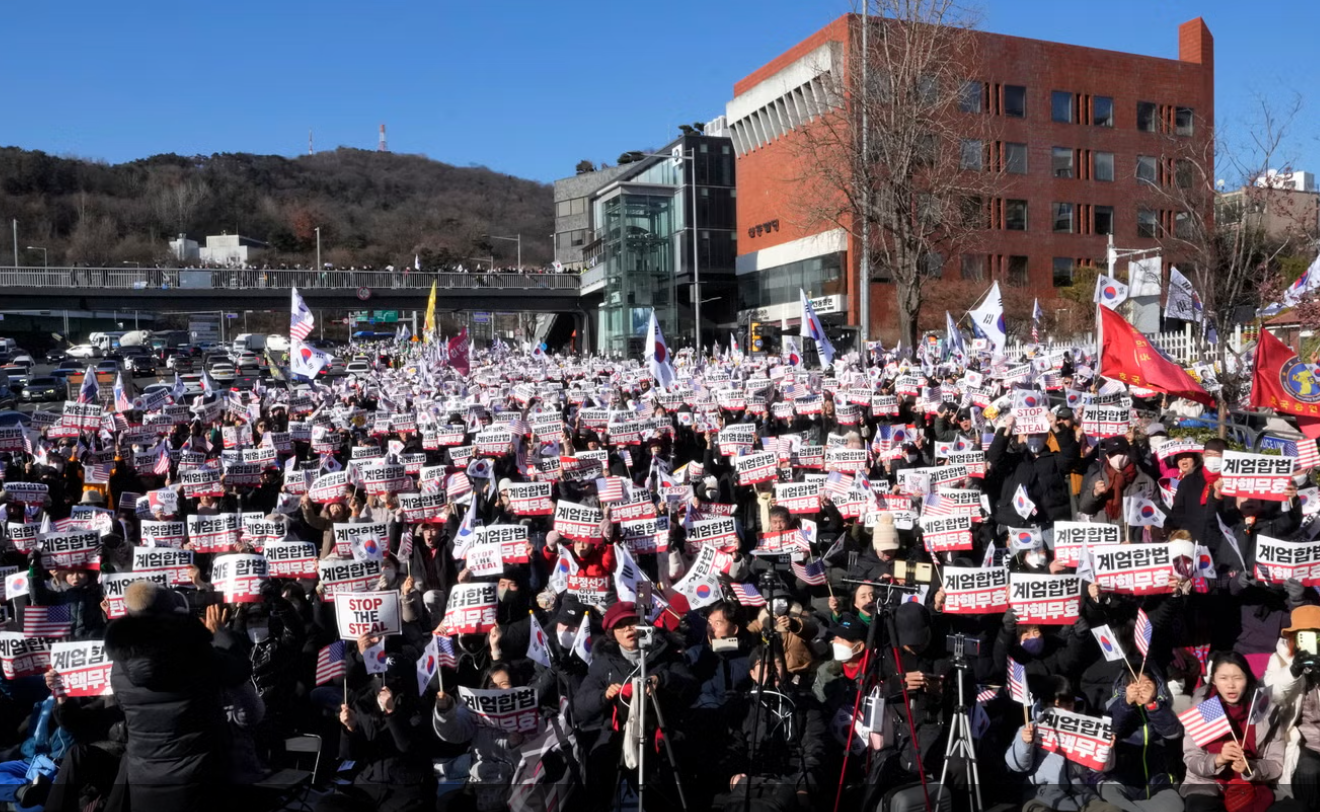(BBC News) The stand-off started long before dawn. By the time we arrived in the dark, an army of police had pushed back suspended president Yoon Suk Yeol’s angry supporters, who had camped out overnight hoping to stop his arrest. Some of those I spoke to were crying, others wailing, at what they feared was about to unfold.
As dawn broke, the first officers ran up to the house, but were instantly thwarted – blocked by a wall of soldiers protecting the compound. Reinforcements came, but could not help. The doors to Yoon’s house stayed tightly sealed, his security team refusing the police officers entry.
For several hours the investigators waited, the crowds outside growing more agitated – until, after a series of scuffles between the police and security officials, they decided their mission was futile, and gave up.
This is uncharted territory for South Korea. It is the first time a sitting president has ever faced arrest, so there is no rule book to follow – but the current situation is nonetheless astonishing.
When Yoon was impeached three weeks ago, he was supposedly stripped of his power. So to have law enforcement officers trying to carry out an arrest – for which they have a legal warrant – only to be blocked by Yoon’s security team raises serious and uncomfortable questions about who is in charge.
The investigating officers said they abandoned efforts to arrest Yoon not only because it looked impossible, but because they were concerned for their safety. They said 200 soldiers and security officers linked arms, forming a human wall to block the entrance to the presidential residence, with some carrying guns.
This is arguably part of Yoon’s plan, leveraging a system he designed. Before he declared martial law last month – a plan we now know he cooked up months earlier – he surrounded himself with close friends and loyalists, injecting them into positions of power.
One of those people is the current head of his security team, who took up the job in September.
Although alarming, this situation is not entirely surprising. Yoon has refused to co-operate with the authorities over this investigation, ignoring every request to come in for questioning.
This is how things reached this point, where investigators felt they had no choice but to bring him in by force. Yoon is being investigated for one of the most serious political crimes there is: inciting an insurrection, which is punishable by life in prison or death.
Yoon has also spurred on his supporters, who have gathered in force outside his residence every day since the arrest warrant was issued. He sent them a letter on New Year’s Day thanking them for “working hard” to defend both him and the country.
Although, reportedly, most people in South Korea are angry at Yoon’s decision to impose martial law, a core of his supporters have stayed loyal.
Many told me this morning they were prepared to die to protect Yoon, and repeated the same unfounded conspiracy theories that Yoon himself has floated – that last year’s election was rigged, and the country had been infiltrated by pro-North Korea forces. They held up signs reading “stop the steal”, a slogan they chanted over and over.
Attention is also now on South Korea’s acting President Choi Sang-mok, and how far his powers extend; whether he could and should sack the president’s security chief and force the team to allow his arrest. The opposition party says police should be arresting anyone who stands in their way.
Although investigators have until January 6 to attempt this arrest again – this is when the warrant runs out – it is unlikely they will go in once more without changing their strategy or negotiating with the security team in advance. They will want to avoid a repeat of today’s failure.
They also have to contend with the throngs of Yoon’s supporters, who now feel empowered. They believe they are largely responsible for the authorities’ climb down. “We’ve won, we did it,” they have been singing all afternoon.
As their confidence grows, so will their numbers, especially with the weekend approaching.
https://www.bbc.com/news/articles/cp8n0ng2m88o


